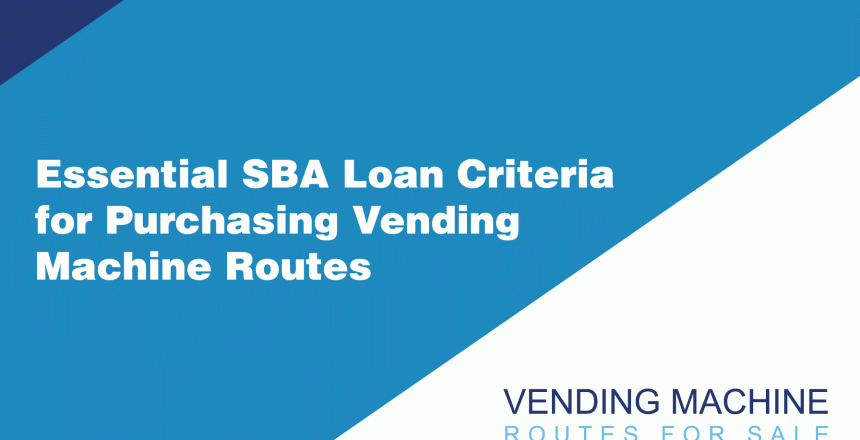When considering vending machine routes for sale, an SBA loan can be a vital resource for funding your acquisition. However, obtaining this loan involves navigating specific requirements that are crucial for successful loan approval. Let’s delve into the five key factors you need to address when seeking an SBA loan for vending machine route purchases.
Five SBA Loan Requirements for Vending Machine Route Buyers
- Minimum Down Payment: For SBA loans, expect to provide a down payment ranging from 10% to 20%, depending on the business’s cash flow and the acquisition’s size. This down payment can come from various non-debt sources, such as personal savings, retirement accounts, or even gifts from family and friends, accompanied by a formal gift letter.
- Post-Close Liquidity: Lenders require you to have a financial cushion after the down payment. This post-close liquidity, ranging from 4-8% of the loan amount, ensures you have funds to address unforeseen cash flow issues.
- Relevant Professional Experience: Lenders assess your background to ensure your experience aligns with your role as a vending machine route owner. They’ll review your managerial experience, industry knowledge, and the viability of your business plan.
- Personal Guarantee: An SBA loan requires a personal guarantee, meaning if the business fails to repay its debt, you are personally responsible. This includes your personal assets like bank accounts and real estate.
- Personal Credit and Background: A strong credit score (typically above 690), a clear criminal history, no recent bankruptcies or tax liens, and no current federal debt are essential for SBA loan eligibility.
Meeting these criteria not only enhances your chances of loan approval but also positions you as a credible and prepared buyer in the eyes of sellers and brokers. By understanding and preparing for these SBA loan requirements, you can navigate the process more effectively, bringing you one step closer to owning a vending machine route.
